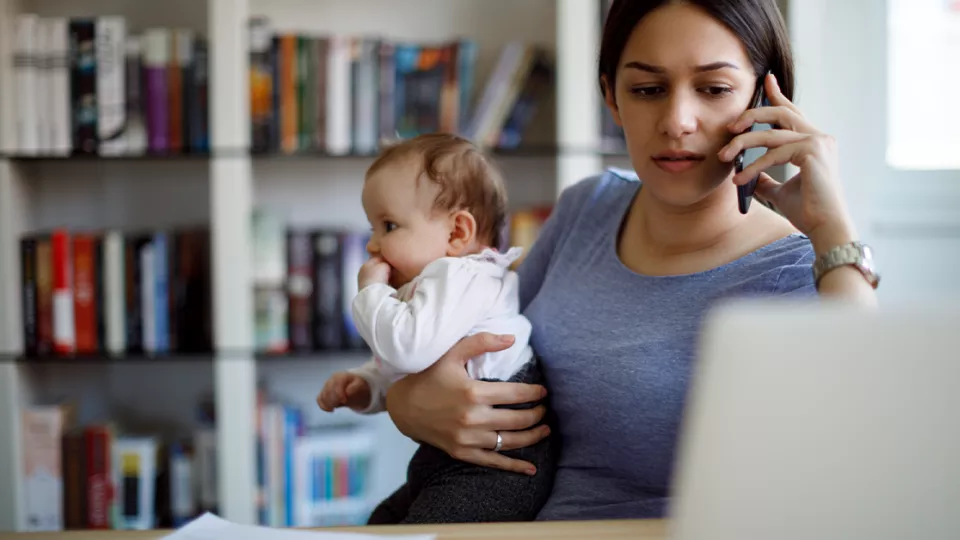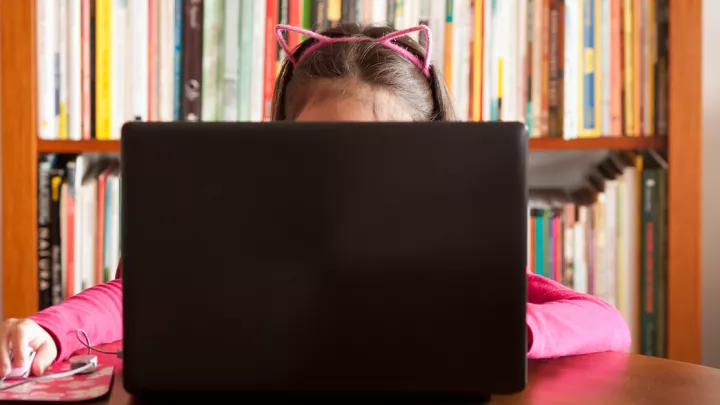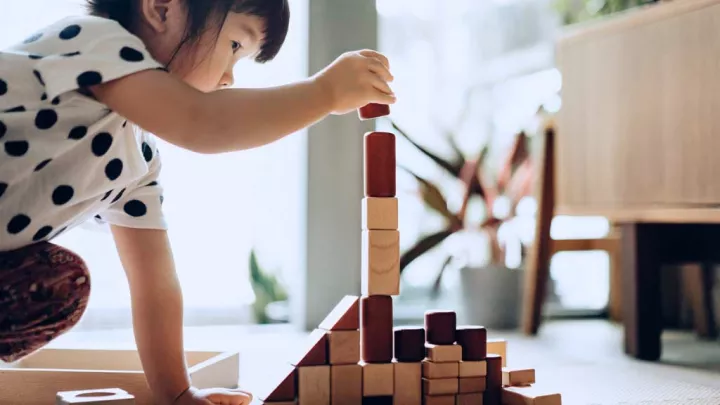
Parents: Caring for Your Own Mental Health Is More Important Than Ever
As a parent, you’re expected to be a master multi-tasker, star teacher and social organizerunder ordinary circumstances, but living in the time of COVID-19 has put those demands intohyperdrive—and increased the need for you to devote time to your own mental health.

“We’re seeing a loss of predictability and a loss of connection in people’s lives right now. As a result, anxiety is elevated, which, if not addressed with other psychological factors can put a person at a risk for depression,” says Alana Epstein, LCSW, Faculty Support, Medical Staff Services, at Children’s Hospital Los Angeles.
“Anxiety is the language of being overwhelmed,” adds Epstein, “and a normal part of a high-stress event like what we’re going through during this pandemic. Parents need to learn it’s okay to have boundaries and to say ‘No’ when things go too fast.”
Natural stress levels get even higher when parents are coping with job insecurity, income loss or unexpected child-care needs. Moms and dads now working from home may seem as if they have more flexible time, “but they also may be struggling to concentrate and achieve eight intentional hours of work with all the new distractions they face,” says Elizabeth Arias, LCSW, Employee Assistance Program Manager at Children’s Hospital.
All parents are dealing with new roles thrust on them that some may never have envisioned—such as home school instructors (especially all that math).
The look of stress
Without some time to chill out, parents may experience difficulty sleeping, along with a series of physical symptoms like gastrointestinal issues, headaches and back aches.
Epstein and Arias advise breaking down anxiety into smaller, manageable bits and learning to let go of certain things, like that myth of being perfect at everything. “Just face it that the family dog is going to show up in your Zoom meeting. It’s OK,” says Epstein.
Parents who ignore, deny or dismiss their own emotional needs do so at the risk of negatively impacting their kids. By taking care of themselves, a parent ideally can ease a child’s anxiety and their own. Start by looking honestly at your family system and how it is working right now.“Ask yourself if there are places where you are feeding the anxiety,” says Epstein. “Or times when you’re disengaged.”
Understanding development
Your “usual” job as a parent—guiding, nurturing and safeguarding your children—may be easier when you keep in mind some realities of child development. Younger kids typically are happier their parents are home more often, but with so much uncertainty can seek extra attention or have more frequent tantrums.

Teenagers are mature enough to better understand the pandemic and the importance of online learning than young children. But teens are also more isolated and may be unhappy at being forced to spend extra time quarantining with family at a period of life when they naturally crave autonomy and peer connections. “You might see some regressive behaviors, a combination of maturity and teen angst,” says Epstein, who has three teens at home. “Your teen may feel stuck in a rigid world.”
Sometimes, parents might be tempted to disguise a harsh reality, and tell their children to stop thinking about bad things to protect them. But Arias and Epstein say it’s best to acknowledge what’s going on, no matter what stage of development your children are in.
One key for effective pandemic parenting is balancing flexibility vs. rigidity. Find those things with your kids that you want to be rigid about, Epstein suggests, such as keeping up with homework, and the things you can be flexible about, such as allowing your teen to play more video games if it’s a way to connect with friends.
“Try to live by fewer ‘all-or-nothing’ ultimatums,” advises Arias. “Over time, you can become more creative about how you set or relax limits.”
At the same time, children respond to predictable schedules, and establishing those could help keep you sane as well. Identify new ways to play as a family—inside your home, in the yard or in a park. Schedule time to exercise together, for example, plan a movie comedy night or try new recipes together.
Work from strengths
Most of all, determine what is in your control and what is not. It’s all part of what Epstein and Arias call a “strength-based approach.” Work from your capabilities first.
If you do find yourself raising your voice or feeling more tense than usual, take a brief pause. Identify, in that moment, what you need to find calm in your own body and to self-regulate. That could mean deep breathing or just taking a walk.
Most of all, be kind to yourself. Remind yourself you have handled difficult things before, found strength and coped. “Figure out how to become your own best ally,” says Epstein.
“Some things will fall through the cracks or you’ll wish you’d done better,” adds Arias. “Being able to forgive yourself is critical.”
Tag teaming
It is crucial for all parents to find time to unwind.
If you have a partner, work as a tag team to give each other much-needed time outs. Let your partner take over kid duty as you go read a book, take a bath, practice yoga, write in a journal—something that you love, that’s only for you.
That can be hard for single parents, but a few alternatives include asking a friend to step in for story time or game time via Zoom, so you can quietly sip a cup of tea, or joining another family in a park for a socially distanced, masked playdate.
“We ask the parents we work with, if you had an ideal day right now what would it look like?” says Epstein. “Out of five challenges facing you, which part can you show up for right now?”


